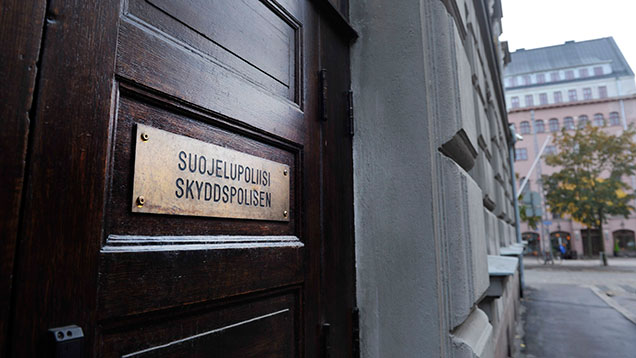Finland needs civilian intelligence to protect national security

A working group is proposing the adoption of intelligence legislation in Finland which aims to improve our protection capabilities against serious threats to national security. Such threats include terrorism, espionage by foreign states or disruption of critical infrastructure. The purpose of this legislation is to enable effective information gathering on these threats, and in this way to support the decision-making of the state leaders. Another aim is to ensure that decisions are based on accurate, reliable and up-to-date information.
The security environment in Finland is changing rapidly. New threats demand a new kind of preparedness and contingency planning. The working groups of the Ministry of the Interior, Ministry of Defence and Ministry of Justice submitted today their reports to Minister of the Interior Paula Risikko, Minister of Defence Jussi Niinistö and Minister of Justice and Employment Jari Lindström. The Ministry of the Interior prepared the report on civilian intelligence. The Ministry proposes new powers to the Finnish Security Intelligence Service which would help it to better detect threats against Finland and to respond to them.
Threats to our national security mainly come from abroad. Therefore, information received from foreign countries and information concerning foreign countries play a crucial role in preventing and combating these threats. The current crime prevention powers do not enable the authorities to detect threats to national security early enough and to take the necessary measures. Finland is one of the few western democracies which do not have legislation on intelligence.
Intelligence powers help to detect serious threats at an early stage
The Ministry of the Interior’s report proposes that a new chapter on civilian intelligence be added to the Police Act and that a new act on network traffic intelligence as part of civilian intelligence be enacted. The working group also proposes that the Finnish Security Intelligence Service be given intelligence powers both in Finland and abroad. These powers would mainly be based on the powers used in crime prevention.
One of these new powers is to gather network traffic intelligence. This means technical intelligence gathering based on automatic screening of cross-border traffic in the communications network, and the processing of this information.
The use of network traffic intelligence would be decided by a court. It would be targeted at a restricted part of the communications network and the information could only be gathered by using specific search criteria approved by the court. The gathering of network traffic intelligence could only be used for activities that pose a serious threat to national security. When gathering network traffic intelligence, the intelligence authorities would also get such information that is not significant in terms of national security. In such cases, this information would be destroyed.
When preparing the bills, efforts were made to interfere with the fundamental rights as minimally as possible, taking into account the requirements set for efficiency and effectiveness of intelligence gathering.
Finnish Security Intelligence Service would no longer be a criminal investigation authority
Because of the wider intelligence powers to be given to the Finnish Security Intelligence Service, it would no longer have criminal investigation and coercive measure powers to ensure a fair trial. The Service could still participate, as an expert authority, in criminal investigation conducted by a criminal investigation authority.
Additionally, because of its wider intelligence powers, oversight of legality of the Finnish Security Intelligence Service would be increasingly important. Internal and external oversight of legality for the Finnish Security Intelligence Service will be made more effective. The Ministry of Justice has prepared the report on the oversight of intelligence gathering.
This work by the Ministry of the Interior is part of the ongoing preparation of intelligence legislation which is based on the Government Programme. Now that the reports have been completed, they will be sent out for comments. The aim is to submit the proposals to Parliament during the coming autumn session.
Inquiries:
Kauko Aaltomaa, Director General, tel. +358 295 418 850, [email protected]
Marko Meriniemi, Senior Adviser for Legislative Affairs, tel. +358 295 488 561, [email protected]
Heli Heikkola, Senior Specialist, tel. +358 295 488 224, [email protected]

